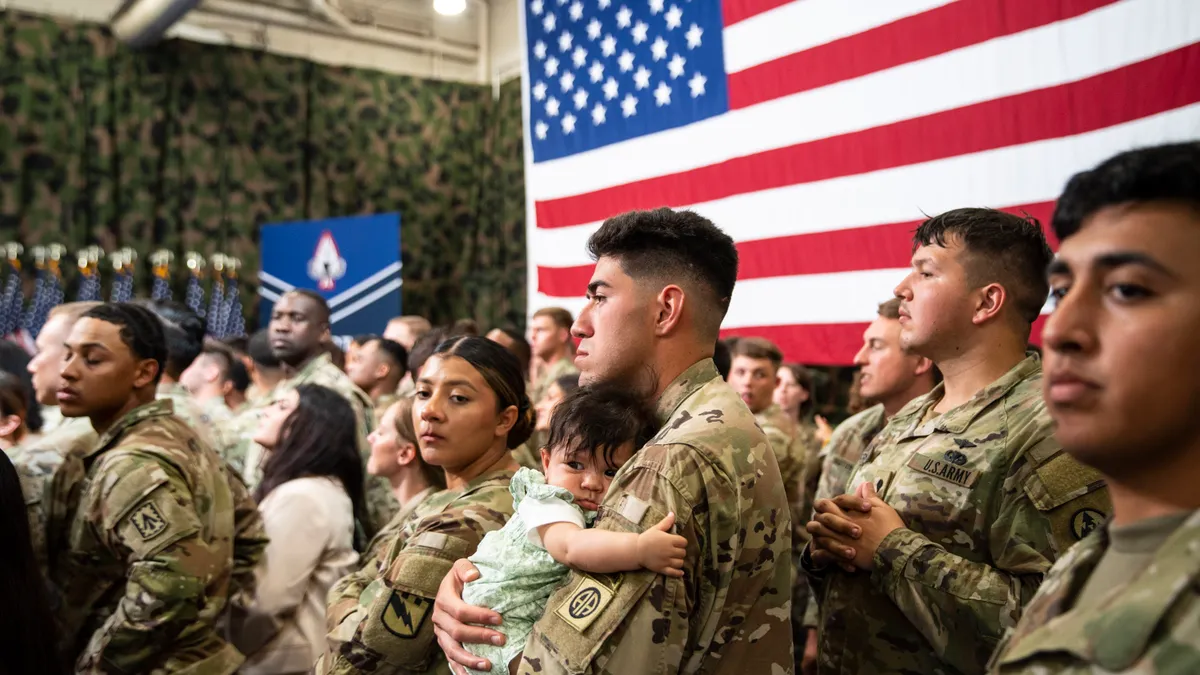Through skills-based hiring, companies can focus on veterans’ work experience and military training to fill needed roles, according to a Nov. 8 report from McKinsey & Co.
Taking this new approach to help veterans transition to the workforce could add $15 billion to the U.S. economy over a 10-year period, new McKinsey research shows.
“Veterans represent a source of labor potential that is untapped relative to the breadth of experience and depth of skills that they acquire and develop during their service,” Scott Blackburn, a senior partner at McKinsey, who is a veteran — along with four other McKinsey workers who are veterans — wrote in the report.
“Members of the military receive technical training, operate under pressure in austere environments and develop strong interpersonal skills throughout their service, making them well qualified for numerous civilian opportunities,” they wrote. “While not every military role is directly transferable to a civilian job, most skills are — including those that correspond to U.S. industries experiencing labor shortages, such as infrastructure and manufacturing.”
For instance, the Bipartisan Infrastructure Law is expected to create jobs for projects involving roads, bridges, waterways, clean energy and electric vehicles, yet a labor gap exists across sectors, occupations and geographies, the McKinsey research found. In an analysis, enlisted veterans’ skills fit jobs associated with trades, including electricians, mechanics and construction professionals. Veterans were rated highly for technical skills such as installation, equipment maintenance, repair and troubleshooting.
The top 15 occupations that employ veterans today are expected to see strong labor demand in coming years, including nursing; freight, stock and material movers; construction laborers and truck drivers. To attract veterans in these areas, companies can hire based on skills rather than degrees, according to the report.
Companies can also set targets for veteran recruitment and hiring. Micron, which is building a semiconductor plant in upstate New York, has pledged to hire 1,500 veterans — or 17% of its 9,000-person workforce — to work at the plant. The company noted that veterans are a good fit for the industry due to experience with heavy machinery and technology, along with a disciplined mindset and team-building skills.
By shifting to a skills-based hiring approach, companies can boost the number and quality of applicants who apply to open positions, as well as upskill and reskill their workers to prepare for new roles, the McKinsey research shows. In fact, retention improves when workers find more opportunities to advance internally, according to the report.
“A hiring strategy that focuses on expanding the pool of potential talent can help communities by creating more and better job opportunities for a broader, diverse pool of workers,” Blackburn and colleagues wrote. “It can also provide upward mobility for millions of workers — including veterans — at a crucial time for the U.S. economy.”
Along with hiring, retaining veterans is an important concern as well. Companies can create a supportive infrastructure and build a veteran talent pipeline to foster a positive culture around veteran employees. Programs such as Hiring Our Heroes and the Transition Assistance Program can help veterans find jobs and take career development courses.
The U.S. Department of Veterans Affairs also offers the Homeless Veterans Community Employment Services program to expand job opportunities for veterans and help employers tap into the veteran talent pool.












